第48章 ARSENIC A LA BRETONNE(5)
The witness suggested an autopsy.His family would not agree.The pious behaviour of Helene put her beyond suspicion, but he took it on himself to dismiss her.During the illness of his father, when Helene herself was ill, he went reluctantly to see her, being told that she was dying.Instead of finding her in bed he came upon her making some sort of white sauce.As soon as he appeared she threw herself into bed and pretended to be suffering intense pain.A little later he asked to see the sauce.It had disappeared.
He had advised his niece to reserve his sister's evacuations.His niece replied that Helene was so scrupulously tidy that such vessels were never left about, but were taken away at once to be emptied and cleaned.I revised my opinion of the woman after she had gone,'' added the witness.
I thought her very well behaved.''
HELENE.I never had any drugs in my possession--never.When I had fever I took the powders given me by the doctor, but I did not know what they were!
THE PRESIDENT.Why did you say yesterday that nothing was ever found in your luggage?
HELENE.I didn't remember.
THE PRESIDENT.What were you doing with the saffron?Wasn't it in your possession during the time you were in Seglien?
HELENE.I was taking it for my blood.
THE PRESIDENT.And the white powder--did it also come from Seglien?
HELENE.Never have I had white powder in my luggage! Never have I seen arsenic! Never has anyone spoken to me of arsenic!
Upon this the President rightly reminded her that she had said only that morning that her aunt had talked to her of arsenic at Seglien, and had warned her of its lethal qualities.You deny the existence of that white powder,'' said the President, because you know it was poison.You put it away from you with horror!''
The accused several times tried to answer this charge, but failed.Her face was beaded with moisture.
THE PRESIDENT.Had you or had you not any white powder at Losmine?
HELENE.I can't say if I still had fever there.
THE PRESIDENT.What was that powder? When did you first have it?
HELENE.I had taken it at Locmine.Somebody gave it to me for two sous.
THE PRESIDENT.Why didn t you say so at the beginning, instead of waiting until you are confounded by the witness? What would the powder be, monsieur? What powder would one prescribe for fever?
DR TOUSSAINT.Sulphate of quinine; but that's not what it was.
Questioned by the advocate for the defence, the witness said he would not affirm that the powder he saw was arsenic.His present opinion, however, was that his father and sister had died from injections of arsenic in small doses.
A witness from Locmine spoke of her sister's two children becoming ill after taking chocolate prepared by the accused.The latter told her that a mob had followed her in the street, accusing her of the deaths of those she had been servant to.
Then came one of those curious samples of `what the soldier said' that are so often admitted in French criminal trials as evidence.Louise Clocher said she had seen Helene on the road between Auray and Lorient in the company of a soldier.When she told some one of it people said,That wasn't a soldier!It was the devil you saw following her!''
One rather sympathizes with Helene in her protest against this testimony.
From Ploermel, Auray, Lorient, and other places doctors and relatives of the dead came to bear witness to Helene's cooking and nursing activities, and to speak of the thefts she had been found committing.Where any suspicion had touched Helene her piety and her tender care of the sufferers had disarmed it.The astonishing thing is that, with all those rumours of `white livers' and so on, the woman could proceed from place to place within a few miles of each other, and even from house to house in the same towns, leaving death in her tracks, without once being brought to bay.Take the evidence of M.Le Dore, son-in-law of that Mme Hetel who died in Auray, His mother-in-law became ill just after Helene's reputation was brought to his notice.The old lady died next day.
The day following the revelation,'' said M.Le Dore, I put Helene out.She threw herself on the ground uttering fearsome yells.The day's meal had been prepared.I had it thrown out, and put Helene herself to the door with her luggage, INTO WHICH SHE HASTILY STOWED A PACKET.Mme Hetel died next day in fearful agony.''
I am responsible for the italicizing.It is hard to understand why M.Le Dore did no more than put Helene to the door.He was suspicious enough to throw out the meal prepared by Helene, and he saw her hastily stow a packet in her luggage.But, though he was Mayor of Auray, he did nothing more about his mother-in-law's death.It is to be remarked, however, that the Hetels themselves were against the brusque dismissal of Helene.She had smothered the mother with care and attentions.''
But one gets perhaps the real clue to Helene's long immunity from the remark made in court by M.Breger, son-in-law of that Lorient couple, M.and Mme Dupuyde-Lome.He had thought for a moment of suspecting Helene of causing the child's death and the illness of the rest of the family, but there seemed small grounds.What interest had the girl in cutting off their lives?''